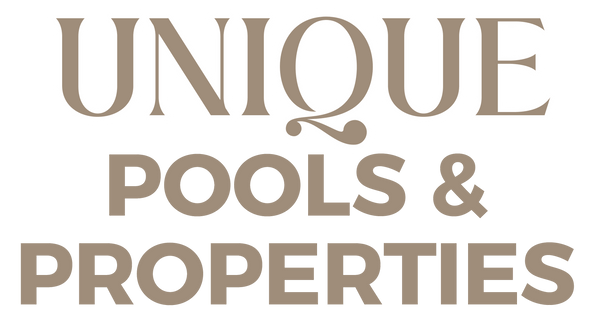What if I'm selling a business but don't have great SOPs?
In business sales, the absence of well-established Standard Operating Procedures (SOPs) can be perceived as a hurdle. However, this challenge doesn't foreclose the possibility of a successful sale; it merely invites a strategic and proactive approach.
The first step in this journey is to identify the critical processes that serve as the backbone of your business—those intricate mechanisms that drive production, customer service, financial transactions, and more.
While formal SOPs might not be in place, there likely exists an informal understanding of how your operations unfold. The next logical move is to meticulously document these processes, capturing each nuance and step in a structured manner.
This endeavor becomes even more potent when you involve key personnel, individuals who possess an intimate knowledge of the day-to-day operations. Conducting interviews or workshops with these indispensable contributors can unveil insights critical to the accurate representation of your business processes.
In parallel, consult industry standards and best practices. This not only lends credibility to your documented processes but also positions your business within a recognized framework. The documentation process should be iterative, involving feedback loops with relevant personnel to refine and enhance the clarity, conciseness, and accuracy of your SOPs.
Recognizing that time may be a constraint, prioritize the documentation of high-impact areas—processes that wield substantial influence over your business's success. Transparency becomes paramount when engaging potential buyers; openly acknowledge the current gaps in SOPs and articulate your commitment to developing and furnishing comprehensive documentation as part of the transition.
Professional assistance, such as consultants or industry experts, can prove invaluable in this endeavor. Their expertise can help streamline and standardize your processes while aligning them with industry norms. Beyond SOPs, accentuate other strengths of your business, such as a devoted customer base, a robust brand, or a talented team. Emphasize the potential for growth and improvement under new ownership.
Include the offer of a transition period—an opportunity for you or key employees to guide and assist the new owners in comprehending and seamlessly assuming control of operations. This hands-on approach serves as a practical countermeasure to the absence of detailed SOPs, showcasing your commitment to a smooth transition.
Ultimately, the absence of comprehensive SOPs is not a roadblock but an invitation to showcase your proactive approach to documenting and enhancing processes. Buyers often appreciate transparency and a dedication to continuous improvement. By navigating this challenge strategically, you can augment the marketability of your business, turning a potential drawback into a testament of your commitment to excellence and growth.
Here's a strategic approach to navigate this challenge in easy-to-digest list format:
1. Identify Critical Processes:
- Pinpoint the key operational processes that are fundamental to the success of your business. These could include production workflows, customer service protocols, financial procedures, and more.
2. Document Existing Processes:
- Even if you don't have formal SOPs, there's likely an informal understanding of how things work within your organization. Start documenting these processes in a structured manner. Be detailed and specific in outlining each step.
3. Involve Key Personnel:
- Engage key employees who have in-depth knowledge of the day-to-day operations. Their insights can be invaluable in capturing the nuances of various processes. Conduct interviews or workshops to gather this information.
4. Consult with Industry Standards:
- Research and incorporate industry best practices into your documented processes. This can add credibility and demonstrate your commitment to aligning with recognized standards.
5. Iterate and Refine:
- Treat the documentation process as an iterative one. Share drafts with relevant personnel for feedback and refinement. The goal is to create clear, concise, and accurate SOPs that accurately represent how the business operates.
6. Prioritize High-Impact Areas:
- If time is a constraint, focus on documenting processes that have the most significant impact on the business. This could be critical customer-facing processes or those directly linked to revenue generation.
7. Acknowledge Gaps:
- Be transparent about the status of your SOPs with potential buyers. Acknowledge the current gaps and outline your commitment to developing and providing comprehensive SOPs as part of the transition.
8. Invest in Professional Assistance:
- Consider engaging professionals, such as consultants or industry experts, to help streamline and standardize your processes. They can offer valuable insights and assist in creating SOPs that align with industry standards.
9. Highlight Other Strengths:
- While SOPs are important, they're just one aspect of a business. Highlight other strengths such as a loyal customer base, a strong brand, or a talented team. Emphasize the potential for growth and improvement under new ownership.
10. Include a Transition Period:
- Offer a transition period where you, or key employees, are available to assist the new owners in understanding and taking over the operations. This hands-on approach can compensate for the lack of detailed SOPs.
Remember, the goal is not to create an exhaustive document overnight but to demonstrate a proactive approach to documenting and improving processes. Buyers often appreciate transparency and a commitment to continuous improvement. They'll value knowing you're dedicated and available during a fair, if no generous, transition period.
By taking these steps, you can enhance the marketability of your business even if you currently lack comprehensive SOPs.





